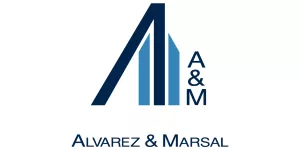The recent First Tier Tribunal ("FTT") decision in the case of Paradise Wildlife Park Limited v HMRC [2023] TC08729, agreed with HMRC that construction services received by a charity, The Zoological Society of Hertfordshire ("ZSH") in the course of building its lion enclosure, outside "World of Dinosaurs" exhibition and "Dino Store" did not qualify for zero rating. This was on the basis that the outdoors exhibit was not actually 'a building' and also, none of the construction works related to any buildings which were intended to be used solely for a relevant charitable purpose.
The matter under consideration was whether ZSH had correctly issued a zero-rating certificate to Paradise Wildlife Park Limited (i.e. to support the zero rating applied by the latter). Given the value of the works involved, the absence of zero rating led to a VAT cost for ZSH (i.e. HMRC assessed VAT of £411,641 on the supplies made to ZSH) since as a charity it was unable to recover all of its VAT.
The case will be of interest to other charities or persons incurring construction costs where zero rating is being sought based on intended use of buildings solely for relevant charitable (or residential) purposes and is a useful reminder of the conditions that need to be met in order for zero rating to apply to such costs.
WHAT WERE THE CIRCUMSTANCES OF THE CASE?
Between June 2017 and June 2019, the charity, ZSH, engaged Paradise Wildlife Park Limited ("PWP"), to construct a lion enclosure, an outside exhibition called the "World of Dinosaurs" and the "Dino Store" at Paradise Wildlife Park. PWP treated its construction works as zero-rated under Item 2(a), Group 5, Schedule 8, Value Added Tax Act 1994 (i.e. as zero-rated construction services supplied in the course of the construction of a building intended for use 'solely' for a relevant charitable purpose). ZSH obtained 90% of its income from admission charges to the park/animal experiences and other commercial activities and 10% of its income from donations.
HMRC disagreed with the zero-rating applied, taking the view that PWP's supplies should have been standard rated and assessed for associated VAT of £411,641. PWP accepted HMRC's assessment that work on the Dino Store (as a retail shop) should not have been zero-rated under Item 2(a) but appealed HMRC's view that the construction of the lion enclosure and the "World of Dinosaurs" were standard rated on the basis that a zero-rating certificate had been properly issued.
WHY DID HMRC TAKE THE VIEW THAT VAT WAS CHARGEABLE ON THE CONSTRUCTION WORKS?
Construction services can be zero rated under Item 2(a), Group 5, Schedule 8, VATA 1994 only when supplied in the course of the construction of a building designed as a dwelling or intended for use 'solely' for a relevant charitable or relevant residential purpose. Typically, 'Solely' means less than 5% non-qualifying use. The case considered "Use for a relevant charitable purpose" which is defined in Note (6) to Group 5 as being use by a charity "otherwise than in the course or furtherance of a business".
"'business' is defined in Section 94 VATA as including any trade, profession or vocation" and specifically states that "the admission, for a consideration, of persons to any premises" is deemed to be the carrying on of a business.
HMRC viewed that the provision of entry by ZSH to premises for a fee was categorised as a deemed business activity under section 94(2)b VAT Act 1994. HMRC also viewed the admission fee as being charged for access to the wildlife park premises and all attractions in it, including the lion enclosure and dinosaur exhibit (i.e. so that individual structures were not to be viewed in isolation from the premises as a whole). Consequently, as there was a business activity, the construction services supplied by PWP could not be zero rated (as a 'relevant charitable purpose' means other than in the course or furtherance of a business).
WHY DID THE FTT AGREE WITH HMRC'S VIEW?
The FTT considered the following aspects in reaching its decision that zero rating did not apply:
(1) Was PWP constructing buildings designed 'solely' for a relevant charitable purpose, and, if so, were the buildings actually being used to some extent by ZSH in carrying on a business?
For the construction services to qualify for zero-rating, the buildings constructed for ZSH would need to have been "intended for use solely" for a non-business purpose. So, the question was whether the lions' enclosure and the World of Dinosaurs were intended for use solely for a non-business purpose. The FTT accepted that both of these constructions made the Park a more attractive place to visit but performed a role in the business side of ZSH's activities (i.e. do not perform functions restricted to ZSH's non-business activities), so were not intended for use solely for non-business purposes.
The FTT therefore agreed with HMRC that ZSH was carrying on a business, but considered this to be the case regardless of the deeming provisions in section 94(2) b. In particular, the FTT stated:
"..even without the assistance of section 94(2)(b), we
would have found that ZSH is carrying on a business in the way it
operates the Park as a commercial attraction to raise money to
finance its charitable activities..."
"..we consider that, in operating the Park as a commercial
attraction to raise money to finance its charitable activities, ZSH
is carrying on a business and its business encompasses the full
spectrum of activities it carries out in order to do
this..."
It was noted that visitors might pay for admission to the Park and not visit all or most of the attractions, but that did not alter the fact that the premises ZSH charges for admission to are the Park, and its deemed business is charging for admission to the Park.
(2) Was the "World of Dinosaurs" outside exhibition actually a 'building'?
The FTT decided that the World of Dinosaurs (which consisted of a walkway through a densely wooded area with large lifesize animated model dinosaurs) was a permanent structure that had been built and can be used, but in no sense is it a building. There is no enclosure, no walls, no roof. No one looking at it would naturally describe it as a building.
In deciding the position, the FTT considered other case law and for example, referenced the FTT decision in Wheeled Sports 4 Hereford Ltd v HMRC, [2011] UKFTT 190 (TC), which said:
"The word "building" is not defined in the statute and various tribunals have taken different approaches, but certain common threads can be drawn. The New Oxford Dictionary definition of a building contains the word "a structure with a roof and walls...". The Shorter Oxford Dictionary includes "a permanent fixed thing built for occupation". Tribunals have highlighted the sense of enclosure which would come with a building. Again, merely because a structure is built, it does not mean that the result is a building - for example a wall or a ship. The [skate park] has clearly been built and is clearly a permanent structure. It is capable of being occupied in the sense of being used but beyond this in no sense can it be viewed as a building. There is no sense of enclosure, having neither walls nor roof. Further, although not in any way definitively, it is not a structure which anyone looking at it and attempting to describe it would term a building."
SUMMARY OF THE MAIN OUTCOMES OF THE DECISION
In summary, the FTT ruled that:
- ZSH was carrying on a business of operating and charging for admission to the Park;
- The lions' enclosure and the World of Dinosaurs were intended for use at least in part for the purposes of that business; and
- The World of Dinosaurs exhibit is not a building.
Therefore, the services PWP supplied in the construction of the lions' enclosure and the World of Dinosaurs were not supplies in the course of construction of a building intended for use solely for a relevant charitable purpose within Item 2(a) of Group 5, Schedule 8 VATA.
WHO WILL THIS BE OF INTEREST TO AND WHAT DO I NEED TO DO TO GET ZERO RATING ON SIMILAR CONSTRUCTION WORKS?
While not everyone will be building lion enclosures, this will be of interest to any persons procuring construction works for charitable or similar purposes. Getting zero rating on construction works can lead to significant savings, especially where the persons incurring those costs are unable to recover VAT charged to them (e.g. charities, partially exempt businesses or non VAT registered persons).
Therefore, maximising any VAT zero rating reliefs (where possible) will reduce overall VAT costs on such works/construction projects. Ask yourself the following questions – answering yes to these will likely bring you benefits:
- Are the works related to a 'building'?
- Will the works be used 'solely' for a relevant charitable (or relevant residential) purpose (rather than for other business use)?
- Are you able to issue a valid zero-rating certificate to the supplier and is this fully supported by the facts at 1) and 2) above?
IS THERE ANYTHING ELSE I NEED TO THINK ABOUT?
The FTT considered whether ZSH correctly issued a zero-rating certificate to PWP and whether the buildings (if they qualified as such) constructed by PWP were intended for use solely by ZSH otherwise than in the course or furtherance of a business. Typically, 'Solely' means less than 5% non-qualifying use, but any calculation method used to determine this needs to be robust, fair and to accurately reflect the extent to which the property will be used for a qualifying purpose. It is important to get this right so that any zero rating is fully supported.
Also, in order to be valid to support zero rating, the certificate needs to be in the form required by HMRC (as set out at Note (12) to Group 5, Schedule 8, VATA 1994 and set out in HMRC's Notice 708) and issued to the supplier before the supply is made.
It is important to remember that if there is any change of use of construction works (or the entire interest in the property is disposed of) during a 10 year period after they have been obtained as zero rated, this may result in a self-supply charge arising (effectively, a VAT clawback - see previous article here). Consequently, use of the works needs to be continually monitored so that any VAT adjustments can be made if required.
NEXT STEPS
The rules around zero rating construction costs can be complex as a number of conditions need to be met. This can lead to costly mistakes and commercial issues where incorrect VAT treatment is applied, so it is important to take advice if needed. If you would like us to advise you further or if you have any questions regarding your own situation, please contact us or your usual A&M VAT adviser.
USEFUL HMRC LINKS
Buildings and construction (VAT Notice
708)
Value Added Tax Act 1994
The content of this article is intended to provide a general guide to the subject matter. Specialist advice should be sought about your specific circumstances.



